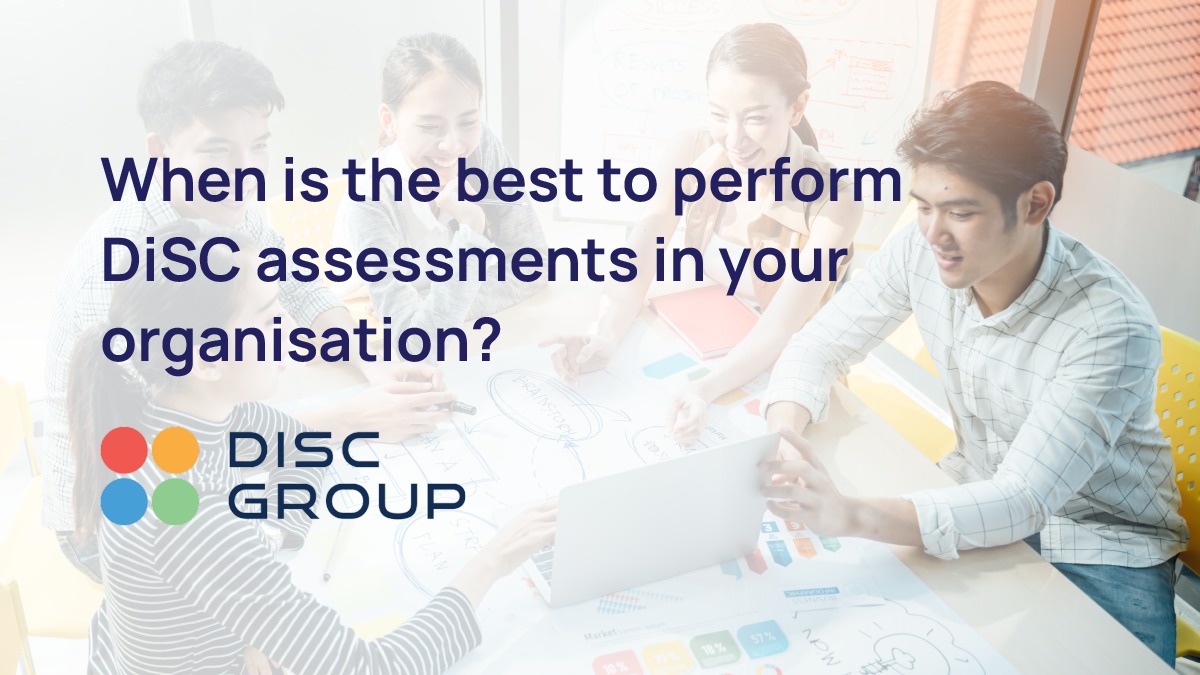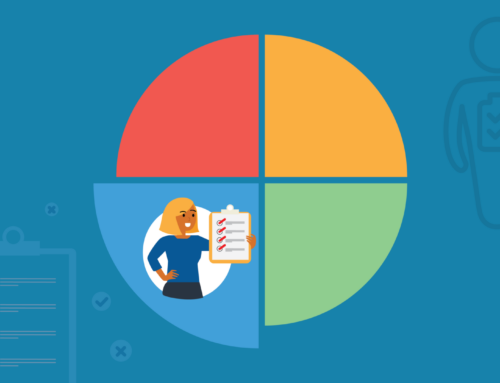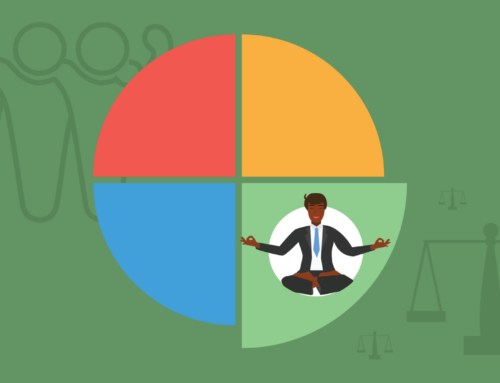DISC assessments are one of the best strategies a business can adopt in order to improve their hiring and management processes. DISC assessments are a type of personality test that specifically analyses an individual’s behaviours and how these would manifest in the workplace.
This personality assessment uses a framework initially developed by psychologist Walter Clarke, who codified the DISC model. He drew on Dr. William Moulton Marston’s theory that human behaviour is guided by four intrinsic drives that form the basis for DISC.
What are the Four Behaviourial Styles of the DISC Assessment?
Dominance (D-style)
Individuals who fall under this style are typically more assertive and task-focused. They are competitive and will overcome resistance and shape their environments in order to achieve results. Unchecked, this can also come across as aggression and stubbornness.
Influence (I-style)
These individuals are very people-oriented and will use their charm to influence their surroundings. They can be enthusiastic, optimistic, collaborative, and communicative; however, they can also be unfocused and overly emotional.
Steadiness (S-style)
Individuals of this personality type are more reserved and people-focused and place an emphasis on security and sincerity. They are usually calm, reliable, thoughtful, and emphatic. However, they can also struggle with adapting to change and may require more guidance.
Compliance (C-style)
Individuals who lean towards C-style behavioural traits are typically detail-oriented and value consistency. They are analytical, systematic, and highly organised, but this means they can also struggle with being overly pedantic and can be slow in producing work.
Taking such personality traits in consideration, the assessment is then able to generate a report which contains a thorough analysis of an individual’s DISC profile and how the results can affect their performance in the workplace. Due to the detailed nature of the DISC assessment’s analysis, there are a range of situations in which a company can use these personality tests; in this blog, we will lay out some of the best times to perform them.
Best Stages for Performing DISC Assessments
Pre-employment recruitment aid
One of the best times to use DISC assessments would be during your hiring process. More and more employers have now begun using personality tests such as this one as part of a candidate’s application process. The insights obtained through pre-employment DISC personality tests can help recruiters understand a candidate’s suitability outside of their academic and professional achievements. Employers can view the individual’s DISC profile and assess their more holistic strengths and limitations to see how well they would work within the team and ensure the right hiring decisions are being made. Personality tests like this are also very useful for recruitment as they provide a non-judgmental assessment of a candidate’s personality type.
Putting together a new team
DISC assessments are not just limited to recruitment cycles but can be utilised throughout the year with existing employees – particularly when a team is undergoing reorganisation. The process of putting together a new team can be difficult, especially when the team members have limited prior experience working together. With DISC personality tests, employers can gain an understanding of their behavioural traits and whether there would be any personality clashes if put together in a team. Through personality testing, especially group specific personality testing, you can rest assured that you are building a cohesive workplace environment that will produce long term, quality results.
Conflict resolution
If a team is experiencing any problems or conflicts, personality tests like the DISC assessment could be a useful tool for understanding the underlying causes. Through utilising these assessments, employers can gain a deeper understanding of their employees’ behaviour and personality traits through their DISC profiles and compare them with the rest of the team members. This thorough personality testing using the DISC model helps to paint a broader picture of a team’s behaviour, how well its members are working together and what could be the root cause of whatever conflict or issue is occurring.
Promotion considerations
Personality tests can also be very helpful when employers are in the process of considering candidates for promotion. When looking at potentially promoting an employee, it can sometimes be difficult to predict whether they will thrive in this new position. The results of personality assessments (like our leadership DISC report) can help employers evaluate how well the employee will work in their new role, similarly to how DISC assessments can help in pre-employment recruitment. Through personality tests, employers can be assured that the employee not only has the professional skills but the right personality and behavioural traits to excel, thus reducing the chance of inaccurate promotions and wasted time.
Creating efficient training plans
These assessments can also provide important information about an employee’s personality that would be helpful for creating training plans. Employees are constantly required to learn new skills and techniques on the job, but it can be difficult to create a training plan that suits everybody’s personality. Some individuals may adapt more easily than others and everybody has different ways in which they best understand new information. With personality testing, you’ll be able to assess how different individuals and teams process new information and build upon this to plan training workshops accordingly – meaning that each individual gets the best out of the training and is able to work more productively.
Strengthening company leadership
Every business needs strong leadership in order to get the best out of its employees. A key aspect of leadership is understanding how your employees work and developing strategies to make sure they are working together as productively as possible. DISC assessments can be very useful for this. Employers can view not only an employee’s individual DISC profile, but also view them through a broader comparative assessment of the wider company to understand how different individuals and their varying personality types work together. By doing so, company leaders are able to create more nuanced strategies suited to how different teams work in order to maximise productivity.
Using the DISC framework can truly be an asset for any business, particularly regarding how they approach their HR strategies. By introducing these assessments into the workplace, employers will not only be streamlining their hiring process but will also create more effective upskilling and team-building strategies within existing teams. With the information obtained through the detailed assessments and DISC profiling, companies can begin to make smarter decisions on how they recruit and manage their employees.
If you’re interested in the DISC method and would like to find out more, feel free to contact us. Our team will be more than happy to help you find the best plan for integrating our range of DISC assessments into your organisation.





